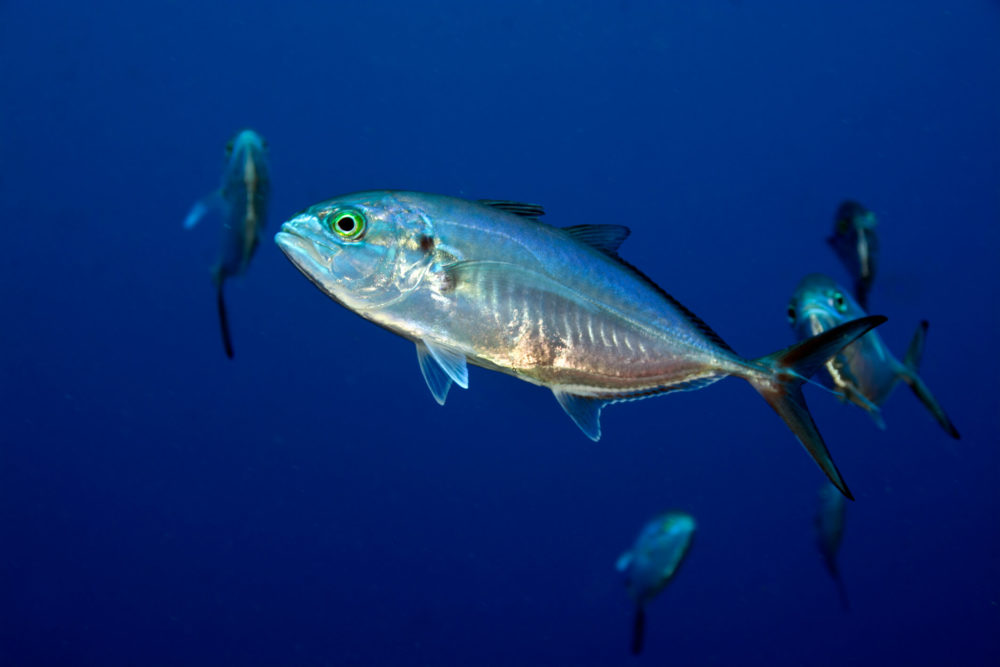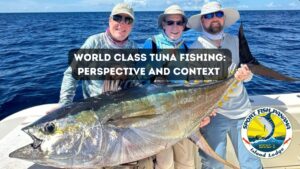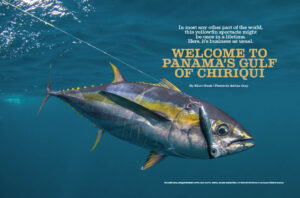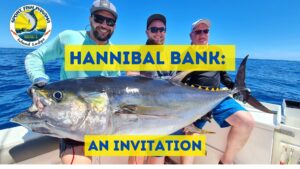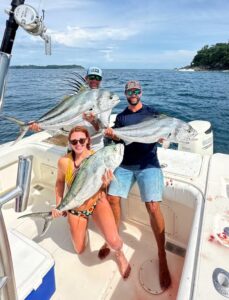opportunity. Regardless, there’s a lot to know about deep-sea fishing before you get out onto the water and experience this level of fun and excitement for yourself!
Here are some facts about fishing in the deep sea to spark your interest and inspire your next trip to Panama.
1. Deep-Sea Fish Differ from Inshore Fish
Different species of fish prefer different habitats based on food sources, water temperature and other factors. There are over 50 species of game fish to catch in Panamanian waters, but only some live in the deep sea. Examples of these offshore species are wahoo, rainbow runner, and Pacific snook. Our lodge, about 12 miles offshore, is ideal if you want to go deep-sea fishing for tuna.
2. Deep-Sea Gear Is Extra Tough
Even if you have only fished in shallower waters, you will likely recognize much of the deep-sea fishing equipment. Much of the equipment is the same, although deep-sea equipment is heavier-duty to handle larger fish. We’ll introduce you to all the best tackle and gear when you book a fishing day charter or package.
3. Fishing Conditions Always Change
What was once an epic fishing spot might not produce any fish on a different day. The seasons of the year, times of day, water temperature, and other factors affect how good the fishing is in a particular place and will always keep anglers guessing! Deep-sea fishing is excellent around Hannibal Bank and the Gulf of Chiriquí.
4. Depths Can Reach 2,000 Feet
Deep-sea fishing rarely goes deeper than 2,000 feet. It takes a lot of fishing line to even get that far down into the ocean. However, the deepest places in the ocean go down to more than 36,000 feet deep and have been largely unexplored.
5. Moon Phases Support Good Catches
Experienced anglers often swear by the phases of the moon to guide their fishing habits, and there is definitely some truth to their superstitions. Full moon and new moon times are great for deep-sea fishing because there is extra light to help fish find prey. Full moons affect the tides and make baitfish more active too.
6. Weather Fronts Affect Fishing
Similarly, weather fronts affect deep-sea fishing conditions, so pay attention to the forecast. Cold air brought in by a weather front will make deep-sea fish feed more actively. When a weather front rolls in, grab your gear and embark on a deep-sea fishing expedition.
7. Deep-Sea Fishing Can Take You All Over the World
By far, Panama is one of the best places in the world for deep-sea fishing, but this is a sport that can take you all around the world on memorable vacations. Other deep-sea fishing hot spots are the Florida Keys, Cabo San Lucas, Madeira, Phuket, Mozambique, and Australia.
To learn more about deep-sea fishing or book your trip, call Captain Shane directly at 011 (507) 6675-7191 or email us at [email protected].
